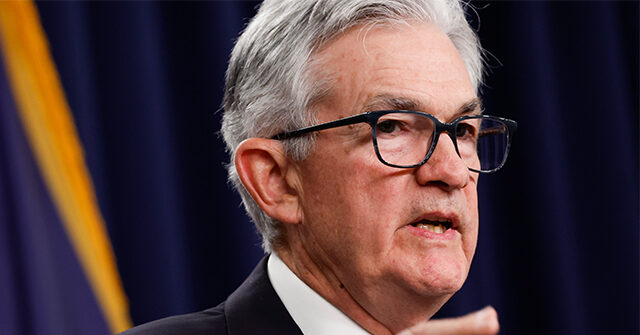

Federal Reserve officials voted to leave the central bank’s benchmark interest rate unchanged, saying that it expects tighter financial conditions will weigh on economic activity, hiring, and inflation.
The Fed said on Wednesday that it would hold its benchmark rate at a range of 5.25 percent to 5.50 percent, the range it set at its July meeting and the highest since the Fed cut rates at the summer of 2007.
“Recent indicators suggest that economic activity expanded at a strong pace in the third quarter. Job gains have moderated since earlier in the year but remain strong, and the unemployment rate has remained low. Inflation remains elevated,” the Fed said in a statement announcing the interest rate policy. “The U.S. banking system is sound and resilient. Tighter financial and credit conditions for households and businesses are likely to weigh on economic activity, hiring, and inflation. The extent of these effects remains uncertain.”
When the Fed met in September, officials indicated that they expected to raise interest rates another one-quarter of a point this year. Many analysts now forecast the Fed will not hike further this year and will begin cutting rates midway through next year. Futures markets indicate two-to-one odds that the Fed holds interest rates steady until it begins cutting next year.
Fed officials have been in a tug-of-war with markets over the past several months over the likely direction of monetary policy next year. Fed officials have indicated they expect to keep rates high through most, if not all, of next year, a view bond investors are skeptical of. Many market participants think that a weakening economy next year will be accompanied by falling inflation, prompting the Fed to cut interest rates earlier than officials expect.
The economy grew at a pace of 4.9 percent in the third quarter of this year, beating almost all forecasts and indicating a big acceleration of economic activity. The personal consumption expenditure price index, which the Fed uses to set its two percent target for inflation, has been stuck at 3.4 percent year-over-year increases for three months, suggesting that inflation may be have become stuck at a high level. On a month-to-month basis, inflation accelerated from the 0.2 percent rate in June and July to 0.4 percent in August and September.
The labor market has not softened, defying expectations. On Wednesday, the Labor Department said job openings edged up to 9.6 million from 9.5 million a month earlier. The jobs report for September showed payrolls growing by an enormous 336,000. On Friday, the Labor Department will release jobs numbers for October. The consensus forecast is for the economy to add 183,000 jobs.




